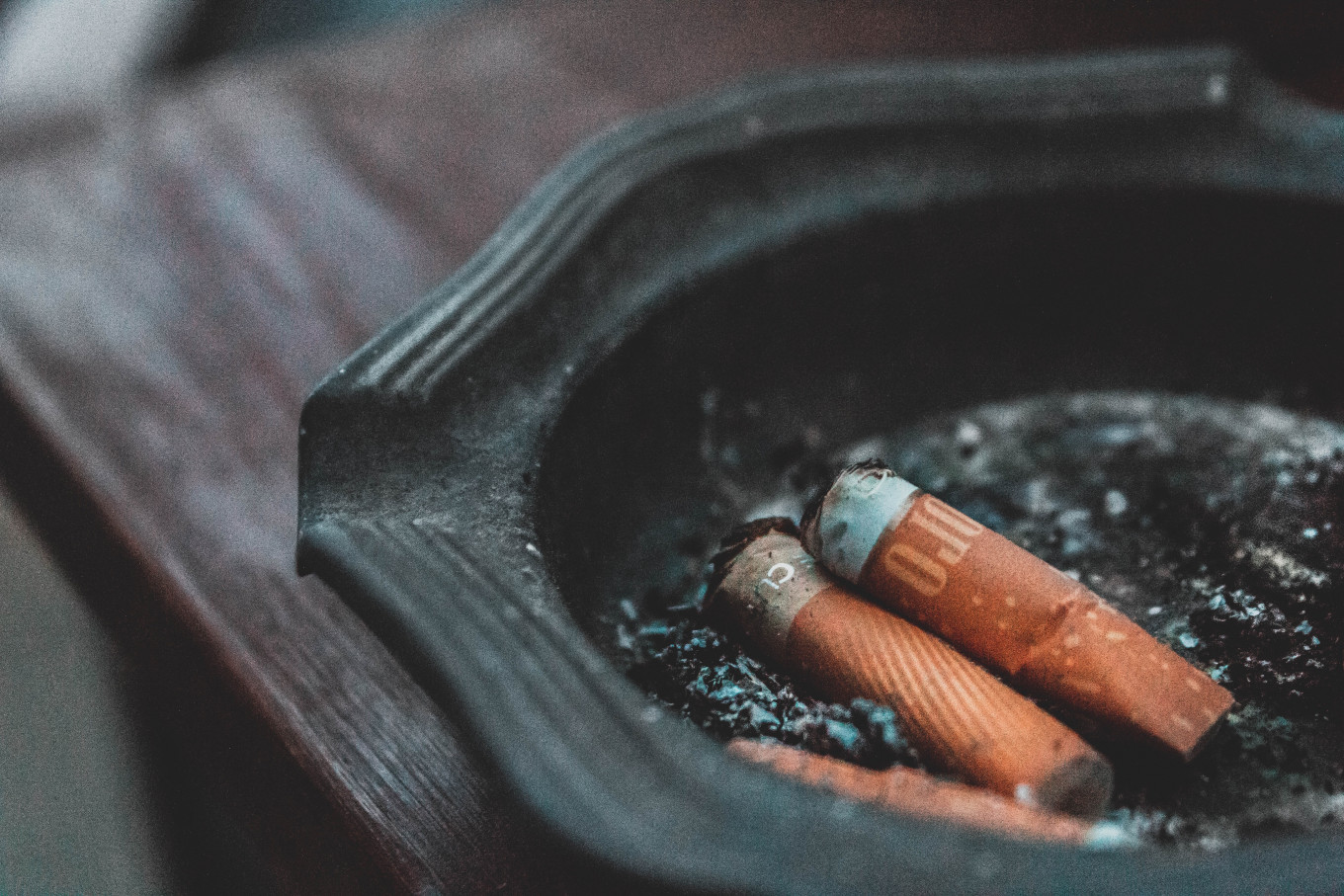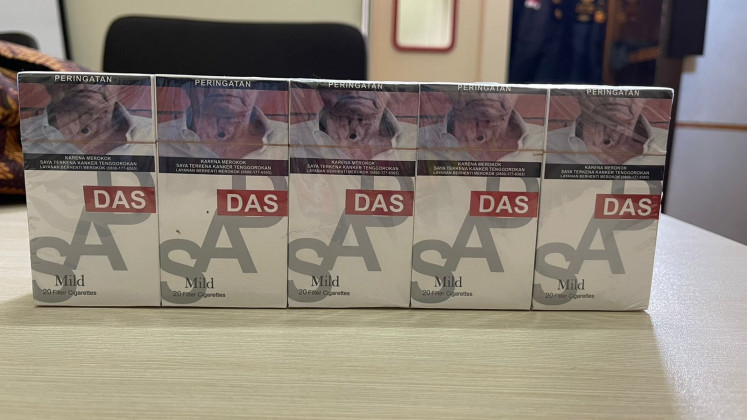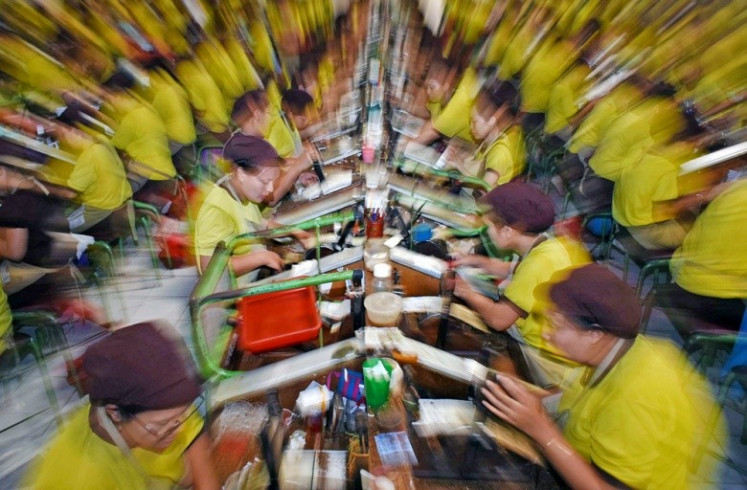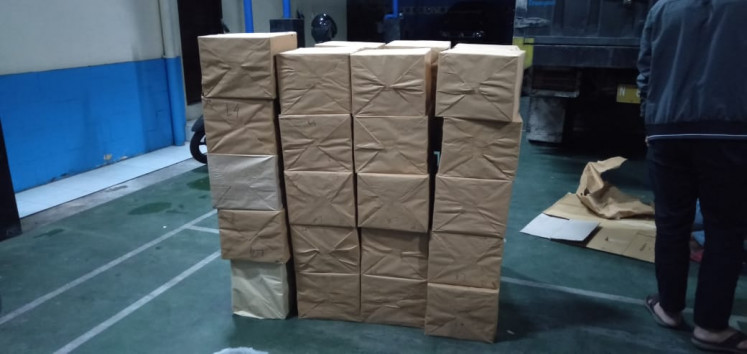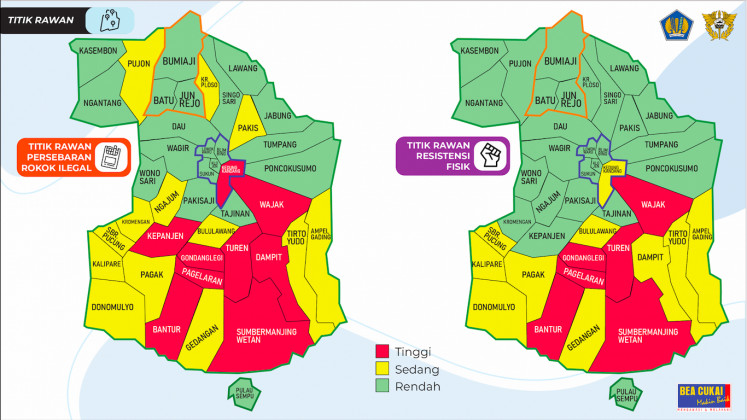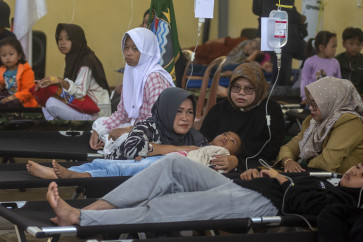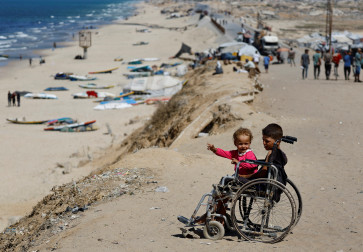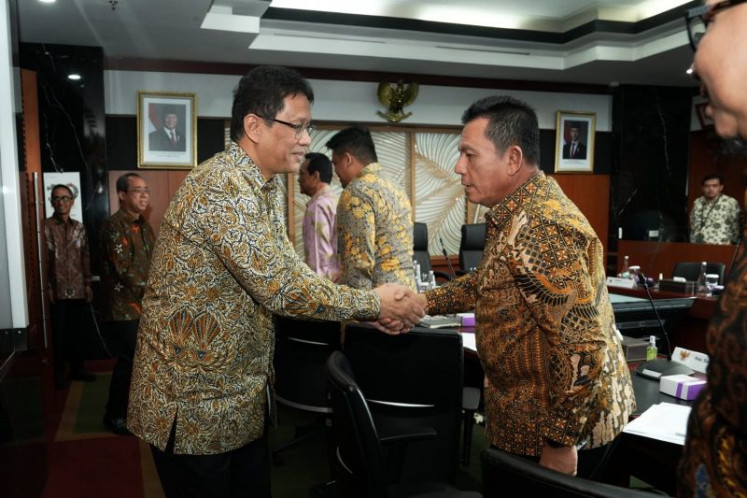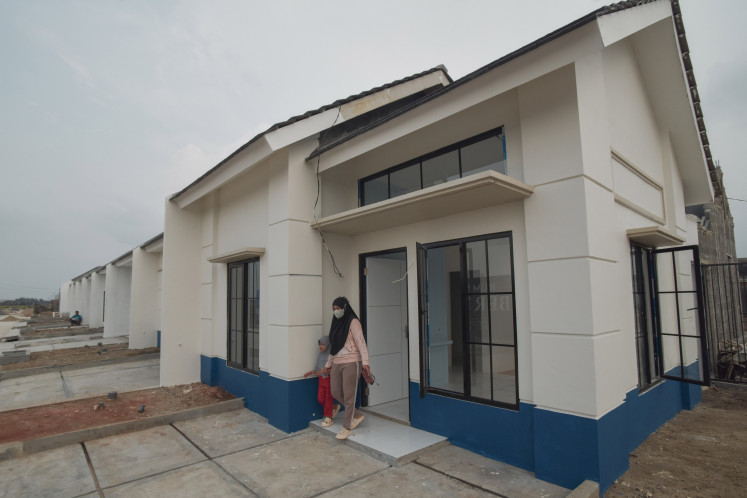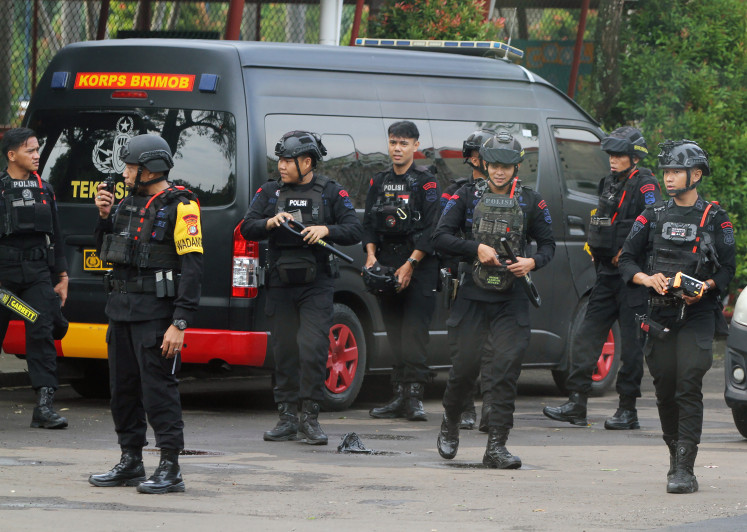Popular Reads
Top Results
Can't find what you're looking for?
View all search resultsPopular Reads
Top Results
Can't find what you're looking for?
View all search resultsIndonesia’s neverending battle against illegal cigarettes
Change text size
Gift Premium Articles
to Anyone
Illegal cigarettes have lost Indonesia trillions, straining the effort of controlling cigarette consumption.
In the last few years, the number of illegal cigarette companies and makers has increased, even after the government implemented a regulation to control illegal cigarettes, or Law No. 39/2007, which sets a legal framework for tobacco production.
The law stipulates that 2 percent of the excise tax on tobacco products is to be used for the improvement of raw materials, the development of the tobacco industry, social development, the enforcement of excise regulations and the prevention of the production and sale of illicit tobacco products.
In 2018, the Customs and Excise Directorate General office in Malang, East Java, seized around 7 million illegal machine-rolled cigarettes. Between 2019 and 2021, the authority confiscated a total of 36 million cigarettes, while in the first quarter of 2022, it found slightly over 6 million illegal machine-rolled cigarettes. Still, illegal — and therefore cheaper — tobacco products can be found online through the keywords rokok non-pita (non-taxed cigarettes).
Hard to control: The illegal cigarette factories often set up a business without a permit from the government. The presence of illegal cigarettes hinders the control of tobacco consumption. (Personal Collection/Courtesy of Andy Tasmiko) (Personal Collection/Courtesy of Andy Tasmiko)According to a February 2022 report by Kompas, the existence of illegal cigarettes has cost the government Rp 53.18 trillion (US$ 3 billion). Additionally, the government is unable to control the number of cigarettes consumed in the country.
Indonesia is one of the biggest cigarette consumers in the world. In 2018, the Basic Health Survey (Riskesdas) revealed that the share of smokers among people aged 15 and above was 33.8 percent, the highest in the world. The smoking prevalence was 62.9 percent among males and 4.8 percent among females, still high despite the warning that the product is loaded with toxins posing serious health risks.
The makers and buyers
Danar (not his real name) is a small cigarette convection owner located at Gondanglegi in Malang who also sells illegal cigarettes online. He revealed that most people who bought illicit cigarettes are from the lower-economic class.
“Most people that buy the products are people with lower income, and they mostly only pay Rp 30,000. They work as local farmers here. And lately, selling the product online has been difficult because shipping cost are getting high,” he said.
Johny, the head of Gabungan Perusahaan Rokok Malang (GAPEROMA), said the increasing number of illegal cigarettes was due to the growing tax applied to tobacco products, as people are looking for cheaper cigarettes, which are of course illicit products. The reasons for the increased tax on tobacco products in the country are to reduce consumption, regulate the industry and boost the government revenue.
Legal vs illegal: The legal cigarette industry also experiences a disadvantage with the presence of illegal cigarettes in the market. Most of the illegal cigarettes are difficult to detect and has caused the country to lose billions of rupiahs from the unpaid tax. (JP/Aman Rochman) (JP/Aman Rochman)Illegal cigarettes are nearly identical to their legal counterpart, but they often use fake excise stamps and cigarettes procured from used excise stamps. Most people who are unaware can be deceived only by their looks.
“There used to be illegal cigarettes that copied an existing brand, which can be considered copyright infringement. But mostly, now they have their own brands that they create through illegal factories,” Johny said.
But even without a brand name, some of the illegal cigarettes are copying the packages of legal cigarettes. For example, HMD Super is similar to its legal counterpart, Djarum Super.
“Sixty to 70 percent of the selling price of legal cigarettes goes to the state in the form of excise, VAT [value-added tax] and local taxes. This is not the case with illegal cigarettes. That is why the price tag of illegal cigarettes is much lower,” Johny explained, adding that the price of one legal pack was equal to at least five packages of illegal cigarettes.
Darto (not his real name), who currently works as a bus driver in Karawang, West Java, admitted that he sometimes bought illegal tobacco.
“Because the price of legal cigarettes has increased significantly since the tax hike,” he said.
Illegal factories
Andy Tasmiko, an official at the Customs and Excise Supervision and Service Office, said the number of illegal factories had also increased and were hard to detect.
The hurdle faced by the customs and excise office is there is no strong evidence supporting the allegation against illegal factories owners, for one. Secondly, most of the illegal factories are constantly moving around, he explained.
“It’s impossible to catch them in action because they are guarded by local thugs, and usually, the factories are owned by local public figures."
He added that his team monitored illegal cigarettes every day, especially in the rural areas of Malang.
Inspections: The customs are trying to prevent the spread of illegal cigarettes through numerous operations including looking through at small warungs and expedition places (Personal Collection/Courtesy of Andy Tasmiko) (Personal Collection/Courtesy of Andy Tasmiko)“We create operations in several different areas in Malang; for example, in the delivery centers or even warung (kiosk) in the rural areas of Malang,” he said.
It gets even harder for the investigation team to detect the transaction as most illegal cigarette factories supply their dealers without a legal agreement.
Stronger regulation needed
Critics say the country is facing a serious and tough illegal cigarette problem because the regulations for illegal cigarettes are not strong enough.
Based on Article 56 of Law No. 39/2007, illegal cigarette producers can be sentenced to a minimum one year in jail and a maximum of five years in prison, with a minimum fine of Rp 20 million and a maximum of Rp 200 million.
Coverage areas: The illicit tobacco products are mostly spread in the southern region of Malang, East Java, where the customs often experience physical resistance in doing operations to dismiss illegal cigarette production. (Courtesy of Bea Cukai Malang) (Courtesy of Bea Cukai Malang/Courtesy of Bea Cukai Malang)“The sanctions against illegal cigarette producers are not strong enough. I suggest the government conduct an audit or impose harsher punishments so that the producers can feel a sense of deterrence,” Johny suggested.
"We only spread information [about the law] and cut distribution channels so far," Andy said.
But for now, without stronger regulations, illegal cigarettes will continue to flourish, creating a loss for the country.

